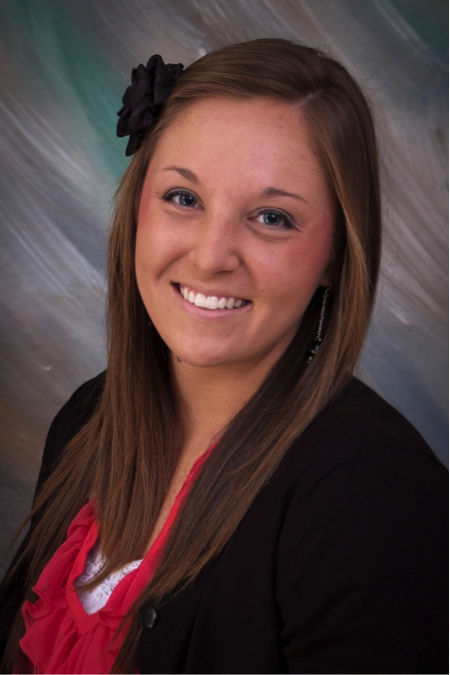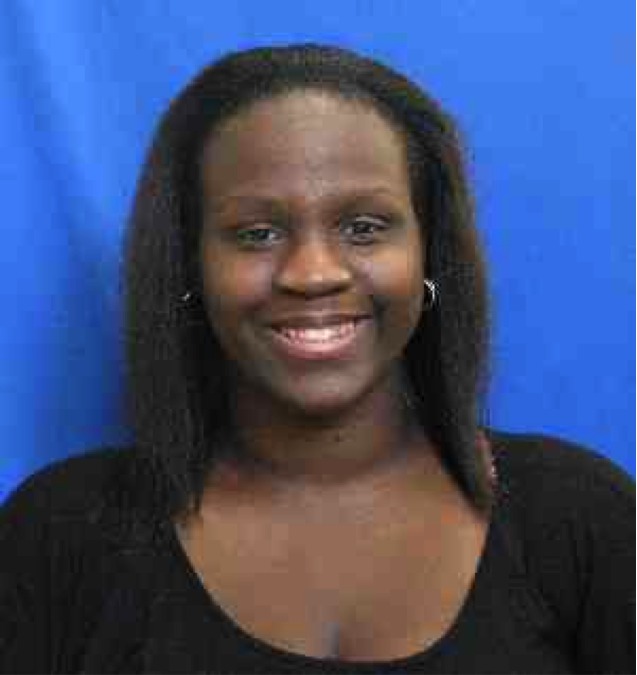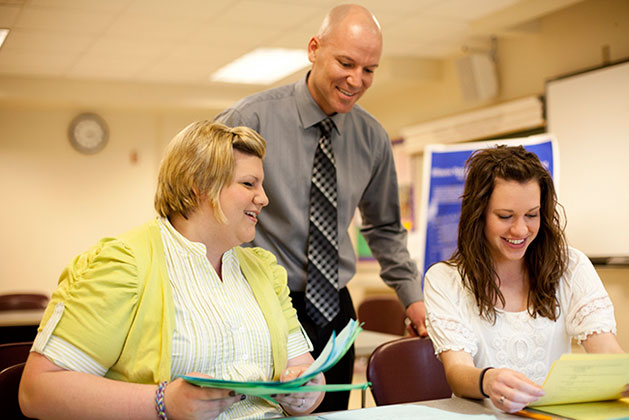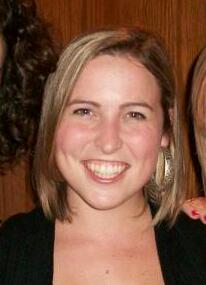Undergraduate Research and Creative Activity
2020 - Gloria Sermersheim An Investigation of Implementing Culturally Responsive Teaching in Elementary Schools
This study examines elementary teachers in East Central Illinois implementation of culturally responsive teaching (CRT) practices in their classrooms.
2019 – Gloria Sermersheim & Mitzi Morales Using an Integrative Model to Study the Cognitive Competencies in Hispanic Students
This study examined influences on the cognitive competencies of Hispanic students. Using the Integrative Model as a theoretical framework, this mixed-methods analysis employed observations and interviews to investigate how children’s individual characteristics and family structures affected students’ cognitive abilities. A reading and mathematics test was also administered to collect quantitative data on the students’ academic competencies.
2019 – Valarie Kuhn Positioning of English Language Learners (ELLs) in the Classroom: The Role of Teachers and Instructional Pedagogy
The study focused on the dynamics of classrooms in which the teachers interact with ELLs, with a specific focus on how teachers offer or limit opportunities for the students’ participation in classroom activities.
2017 – Samantha Reinbold & Darneisha Spann “One Person with Passion is Better Than Forty People Merely Interested”: A Survey of Early Childhood Education Teachers’ Job Satisfaction
This quantitative study sought to assess the job satisfaction of early childhood educators and determine what factors influence satisfaction. Thirty-two teachers were surveyed on their job satisfaction and asked to rate their satisfaction with specific aspects of their jobs, such as administration and salaries.
2015 – Huei Yi Koay What Children Know About Mathematics: Investigating Children’s Numeric Reasoning
This study included a total of 28 preschoolers participated in clinical interviews to investigate their understanding of numeric reasoning by measuring their rote courting, rational counting, concept of “zero,” and quantitative comparisons.
2013 – Erika Shepherd & Celia Naso Teachers’ Attire: Preschoolers’ Perceptions about Good Teachers
The study investigates the relationship between teacher attire and preschoolers’ perceptions on what a good teacher looks like.
2011 – Jorjoh K. Joof & Mohogany Q. Williams Teaching Mathematics in Early Childhood Classrooms: Exploring Teachers’ Beliefs About What Works Best
This study examined elementary school teachers’ perceptions on hos their beliefs about teaching mathematics influence their teaching practices. K-3 teachers in Central Illinois were surveyed, using the Earnest Teacher Mathematics Beliefs Scale (1998). Results, analyzed descriptively, revealed that beliefs about teaching mathematics vary by grade level. Most teachers agreed that their beliefs about teaching mathematics influence their teaching practices.
2011 – Catherine Welsh & Geena Anselmo An Examination of Students’ Perspectives on What Works in Learning Mathematics
This study investigated young students’ perspectives on what strategies work well in learning mathematics. Using a mixed-methods approach, the researchers administered a quantitative survey, completed classroom observations, and conducted interviews to triangulate their data.
2010 – Nicole Dallas & Molly Hussey An Examination of Cultural Sensitivity Activities in Preschool
This study investigated the extent to which preschool teachers implemented culturally sensitive activities and practices in their classrooms.
2010 – Molly Hussey An Exploratory Study of Racial Understanding Among Preschool Children
The purpose of this study was to explore preschoolers preferences towards children from different cultural backgrounds.
2009 – Nicole Dallas & Catherine Welsh What Teachers of Young Children Should Know About Using Food in the Early Childhood Classrooms: An Exploratory Study
This study examines the practices and perspectives of Central Illinois teachers with regards to the use of food as a play material in the early childhood classroom.
Geena Anselmo & Mohogany Williams Does code switching work for young children? A case study of English language learners.
The study examines if a code switching technique demonstrated by the teacher helps English language learners acquire a second language. Nineteen preschoolers from families speaking Spanish as their primary language participated in the study for seven weeks. Structured classroom observations, pre-and post-test checklists, anecdotal notes, and the Speaking Component Scale were used to measure children’s scores in speaking, listening and writing in English. Data from the Speaking Component Scale showed an increase in grammar and expressive language scores after learning about the code switching technique. However, the children scored low in the reading component of identifying concepts about print and text features post-test. The code switching technique does appear to support the acquisition of a second language for English language learners.
More about Geena

"Geena Anselmo is a senior majoring in Special Education with Dual Certification in Early Childhood Education. She is a President of the Student Association for the Education of Young Children, an active member of the Special Education Honors Fraternity and Sigma Rho Epsilon. Geena had conducted two research studies entitled, Does Code Switching Work for Young Children? A Case Study of English Language Learners (with Mohogany Williams) and An Examination of Student’s Perspectives on What Works in Learning Mathematics (with Catherine Welsh). Both studies were funded by the College of Education and Professional Studies grants and under the supervision of Dr. Sham’ah Md-Yunus. These studies were also presented at the National Conference for Undergraduate Research and Eastern Illinois University Showcase in 2010 and 2012. Currently, Geena is developing a tool to help children with autism to learn concepts about print.
In the future she plans to pursue a Masters Degree to continue research in education.
More about Mohogany

Mohogany is a senior majoring in Early Childhood Education and specialized in Special Education. Currently, she is student teaching in Richpon Park, Illinois. Mohogany was a past treasury of the Student Association for the Education of Young Children. She had conducted two research studies entitled, Does Code Switching Work for Young Children? A Case Study of English Language Learners (with Geena Anselmo) and Teaching mathematics in early childhood classrooms: Exploring Teacher’s Believe about What Works (with Jorjoh Joof). Both studies were funded by the College of Education and Professional Studies grants and under the supervision of Dr. Sham’ah Md-Yunus. These studies were also presented at the National Conference for Undergraduate Research and Eastern Illinois University Showcase in 2011 and 2012.
Candice Ivie & Jordan Palmgren Exploring Impact of Standardized Testing

Standardized testing has become a major factor in the evaluation of our nation's schools, in turn impacting the funding of school districts, the psyche of the students tested, and the jobs of teachers expected to prepare students for these tests. A pair of Eastern Illinois University education students has grown skeptical of this system, however, and they recently presented their research on the matter at the National Conference on Undergraduate Research (NCUR) event in Ithaca, N.Y.
Candice Ivie and Jordan Palmgren surveyed third- through fifth-grade students and teachers on the impact of the Illinois Standardized Achievement Test and the effects it has on the classroom environment, gathering data on the correlation between preparation time and students' test anxieties, ISAT's impact on classroom curriculum and time spent on subjects not stressed at specific grade levels, and its overall influence on the education process.
Their findings seem to support the idea that teachers and students alike tend to experience undue stress as a result of testing, which in turn affects performance and calls into question the testing's effectiveness.
"It has been both insightful and heartbreaking," says Ivie. "To hear that some students are nervous about this test and feel pressured or stressed based on their performance is not the necessarily a thrilling find, but hopefully one that can help us to look at alternatives to assessing students.
"Within the last few years, education has been changing in several ways — everything from teaching methods to standards — but the way we assess our students has consistently stayed the same. For years, we have been assessing students through standardized tests, which don't necessarily give all students a fair chance or assess on all skills."
Palmgren says a discussion of the Race to the Top program in her Block I class touched a nerve and sparked her desire to conduct this research.
"This particular topic got me fired up and bothered that some schools are not receiving funding they not only deserve, but need as well," says Palmgren. "Teachers are being fired based on students scores alone, some schools are being shut down permanently because of their students' performance, and everyone wants to blame the teachers.
"After our discussion in class a few of us were curious how other teachers and students felt about this particular topic and thought it would be interesting if we could ask the teachers and students we will have in practicum. Dr. (Daniel) Carter informed us that this is more of a research project and that we should consider pursuing this opportunity."
As future teachers and parents, the subject obviously hits home with both students.
"I worry about my curriculum being limited, which could then have a negative effect on my lessons and the overall education of the students I teach," says Palmgren. "I feel education is more important than just a test on which one needs to perform well. Education is a way to better oneself.
"I'm concerned that the purpose of education is becoming lost. I know I am not going to college to learn how to teach to a test! If that's the case, anyone can be a teacher but teaching is much more than that."
One thing is certain: neither student feels their work is done. They have been chosen to present their work at National Louis University's Research Forum in Chicago. They're looking forward to presenting this research to an Illinois-based crowd that is familiar with the subject matter.
"We're hoping to get the attention of the Illinois crowd and hopefully spark some interest," says Ivie. "Our research is to really help find a way to better the plan we currently have in place. If we can simply inspire a couple of teachers to find other ways to go about looking at the ISAT test and how they prepare for it, then we're moving in the right direction. But in the long run, we hope we can assist in improving the assessment plan that is currently becoming a stressor for many elementary students." Palmgren agrees.
"At this point I do not feel that our research is complete," says Palmgren. "We collected a lot of data, but I do not feel that it is enough to support an accurate conclusion about how central Illinois teachers and students feel about the impact ISAT has on a classroom. I can only state the reflection and feelings of X amount of schools. I want the research to have more meaning.
Maegan Wilton Historicizing Christopher Columbus for elementary and secondary students.
Effective social studies teachers use comprehensive, complex content that complicates students’ prior knowledge. Engaging methods and authentic assessments supplement the content, which incorporates interesting primary sources and the latest secondary interpretations. Historians’ understandings about Columbus, however, differ dramatically from both the public’s knowledge of and teachers’ lessons about Columbus. Historians strongly disagree on Columbus’s motivations and how modern society should perceive his involvement in violence, slavery, and thievery; they disagree to a lesser extent on his navigational talent, bravery, curiosity, and interest in India and spices. These historical disagreements manifest into controversy when various political, educational, or special interest groups (attempt to) influence how schools teach about Columbus. Teachers (especially elementary educators), intending to avoid controversy, generally create a “hero” narrative based on Columbus’s navigational skills, bravery, curiosity, and interest in Asia, India, and spices. By censuring contentious content, teachers generate a one-dimensional narrative of Columbus as pious and without fault. To constructively confront this paradigm, the authors historicize Columbus through representative examples of primary source material and competing secondary historical interpretations of the primary sources. They adapt the content, offer age appropriate methods, and suggest authentic assessment strategies for elementary, middle, and high school teachers.
Christopher Columbus in an Elementary School’s Spiraled Curriculum: A Case Study.
Educators’ content background and use of accurate, age-appropriate teaching materials generate quality teaching. Content in every grade level should supplement content from previous grades in a spiraled format. State test results on students’ math and reading indicate, but do not prove, the presence of these two presumptions. Because history is not tested, the authors examined the basis of these two presumptions for history in two school districts that require every elementary educator to teach about Christopher Columbus. Findings reveal significant interconnections between these two presumptions and have consequential implications as states consider standardized testing in other curricular areas, such as history.
Full article to be published in Winter 2013 issue of Middle Ground Journal of Academic World History.
More about Maegan

As an undergraduate student in the Department of Early Childhood, Elementary, and Middle Education at Eastern Illinois University, Maegan Walsh (now Wilton) explored the historiography of Christopher Columbus in Dr. Bickford’s Block II social studies methodology course. For this research, Maegan received the Booth Library Award for Excellence in Student Research and Creative Activity. Maegan then earned the Honors College’s Undergraduate Research, Scholarship, and Creative Activity grant to investigate local elementary schools’ implementation of Columbus curricula. Maegan and Dr. Bickford examined the generated data and then constructed a spiraled, K-12 curriculum with differentiated content, age-appropriate methodology, and discipline-specific assessments. World History Connected published the latter in Spring of 2012; Middle Ground Journal of Academic World History accepted the former for publication in Winter of 2013. Maegan’s heart lies in the classroom with young students and her focus remains on being the best possible teacher. She was a 3rd/4th grade elementary teacher at St. Philip Neri School (Chicago, IL) and currently is a 6th grade teacher at Learn Charter School (North Chicago, IL).
